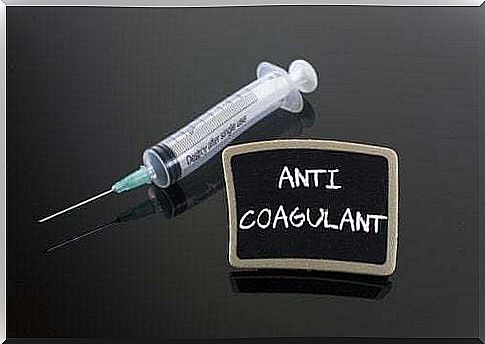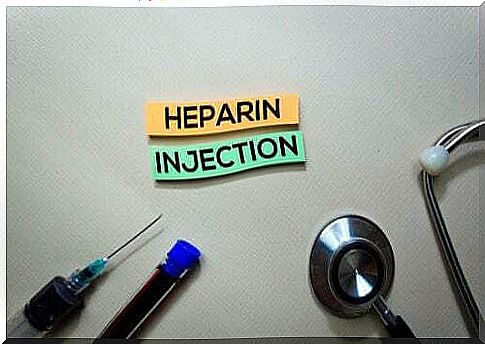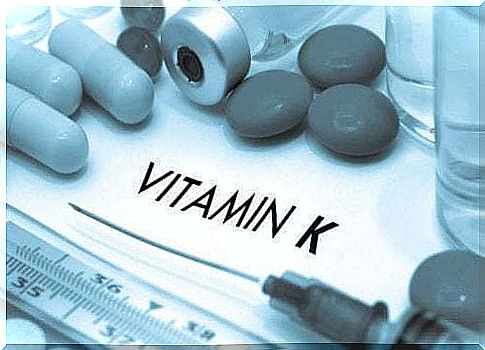Anticoagulant Therapy: Recommendations

Anticoagulation therapy, as the name suggests, is aimed at preventing the blood from carrying out the clotting process. It means that it prevents the formation of blood clots which can endanger health.
This treatment involves various drugs which, by dilating the blood clotting times, reduce the incidence of thromboembolic disease. This disease occurs when a thrombus, a clot within the circulatory system, circulates through blood vessels, obstructs a vein or artery, preventing blood from reaching the tissues properly.
It is currently estimated that about 2% of the general population needs anticoagulation therapy; the vast majority is made up of people over the age of 65.
This therapy, however, requires strict medical supervision due to the high risk of side effects, such as bleeding. In this article we indicate some recommendations on anticoagulation therapy that everyone should follow.
What is anticoagulant therapy used for?
Anticoagulant therapy can follow different guidelines and forms of administration. First, there are oral anticoagulants, which are given to people with atrial fibrillation.
Atrial fibrillation is a cardiac arrhythmia, which is an alteration of the normal rhythm of the heart. Unfortunately it is very common, as it affects almost 9% of the population. Furthermore, the number of people affected increases with age.
Atrial fibrillation increases the risk of blood clots forming within the chambers of the heart. Therefore, these clots tend to break off and advance through the blood, obstructing the vessels and causing an embolic accident.
On the other hand, anticoagulant therapy is also aimed at people with heart implants and for those who are at high risk of venous thromboembolism. Other indications of this treatment are:
- Prevention of acute myocardial infarction, especially in people who already have arterial disease, such as atherosclerosis.
- People at risk of stroke.
- Patients who have suffered several heart attacks.

You may be interested in: Heparin: what is it and how is it administered?
Recommendations for anticoagulant therapy
This therapy must be properly supervised, as slowing blood clotting increases the risk of bleeding. This requires a blood test every 4 weeks at the latest.
Anticoagulant therapy must be prescribed and performed by a doctor or nurse. Medical professionals will determine the exact dosage. The ideal is to do it every day at the same time; if you forget to take your prescribed dose, a double dose should never be taken to make up for a forgotten one.
Likewise, whenever a new drug is to be taken, one must consult with the doctor because anticoagulants react easily with other drugs.
In addition to this, it is important to know that anticoagulant therapy should not be stopped without prior medical advice.
Other tips
Drinking alcohol and smoking should be avoided during anticoagulation therapy. Some studies also state that you should also be careful with your diet, because these drugs interfere with the metabolism of vitamin K.

Vitamin K promotes the coagulation process. It is present in many foods such as animal liver, spinach and other vegetables. Therefore, if you are undergoing anticoagulant treatment, it is recommended that you limit foods with vitamin K to two servings per day at the most.
Another basic recommendation is to be able to recognize any type of bleeding. For example, if you notice blood in your stool or urine, it is best to go to the doctor as soon as possible.
In the case of women of childbearing age who wish to become pregnant, they must first consult their doctor. In fact, blood treatments can interfere with pregnancy. The same happens if you have to undergo a surgical operation.
Conclusions
Those who need anticoagulant treatment must properly follow all the doctor’s instructions. It is important to understand that these are high-risk drugs that absolutely cannot be taken lightly.









